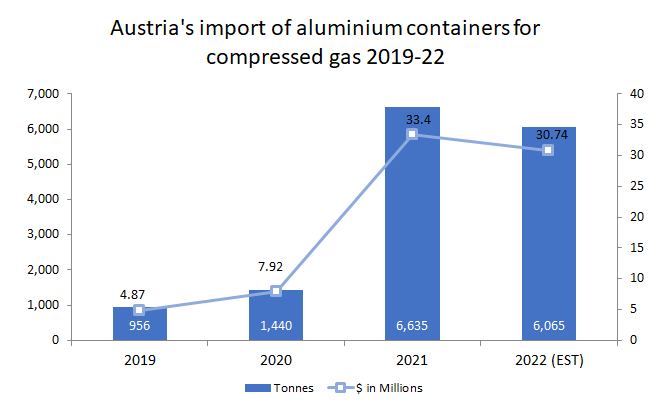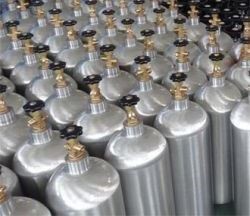

Aluminium has become pervasive and crucial in their daily lives. In the industrial field, aluminium alloys offer tremendous variety and many benefits, transforming nearly every industry and this includes the proliferation of high-pressure gas cylinders, as storage of gas is an imperative component. It used to be extremely difficult and expensive to store and access gases of all types, ranging from the most toxic to ordinary air. Due to the development of aluminium alloys, there are now many easy and cost-effective solutions available.

Gases that are compressed are stored under pressure in cylinders. Compressed gasses are classified as liquefied gasses, non-liquefied gasses, and dissolved gasses. It is usually measured in pounds per square inch gauge (PSIG) or kilopascals. The most common compressed gases are propane, nitrogen, chlorine, helium and oxygen.
The country in the southern part of Central Europe, Austria imported 9031 tonnes in the volume of aluminium containers from compressed gas, outflowing revenue expenditure of around $46.19 million for the import.

In 2019, Austria’s import of the aluminium containers for compressed gas was documented at 956 million tonnes in volume, incurring an expenditure of $4.87 million, whereas, in 2020, the import witnessed a growth of 50.62%, as the import volume scaled up to 1440 tonnes and expenditure also scored to $7.92 million.
Austria’s imports in 2021 reflected an exceptional upswing by 360.76%, as the import volume excelled to 6635 tonnes, counting expenditure to rise at $33.40 million.
The import for 2022 is analysed with de-growth by 8.59%, as the import volume is anticipated to plunge and remain at 6065 tonnes and costs also to drop by $30.74 million.
The major trading nations for Austria’s export of aluminium containers for compressed gas are China, Germany, Netherlands, Italy, Switzerland, Turkey, UK, etc.
Responses








